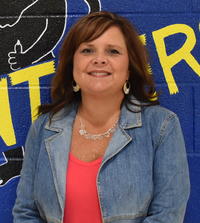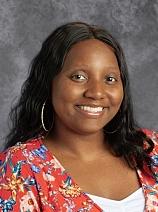What Is the Abbreviation Master Reading Teacher
Chief of Arts in Reading Didactics
Acquire More APPLY NOW
The Main of Arts in Education (One thousand.A.Ed.) in Reading Didactics is designed for classroom and reading teachers to prepare them as leaders in the field of literacy education and every bit reading specialists. Since the program builds on the knowledge base and experience of the practitioner, teachers who enter the Grand.A.Ed. must have professional teacher licensure. This is a 36-hr program that will enable teachers to develop expertise in the teaching of reading, the diagnosis and remediation of problems and the development of successful reading programs. Teachers will too have opportunities to develop leadership competence in the design, delivery and assessment of reading and services. The Reading Education programme is accredited by the National Quango for Accreditation of Instructor Teaching (NCATE) and approved past the North Carolina Country Board of Education
Catalog 2019-2020 UNCP Graduate Reading Handbook
UNCP Graduate Student Handbook Reading Graduate Checklist

"I believe that the most important cistron in a educatee's academic success is the quality of their classroom teacher."
An alum of UNC Pembroke's Chief in Reading Education program, Nicole Pait, has been in education for 24 years—teaching in grades K-5, serving as an bookish double-decker, a Reading Recovery teacher and RCS Literacy Coordinator. She currently serves as Richmond County Schools' Thou-12 Director of ELA, Social Studies, Arts and Gifted Education.
- Students applying for admission to the plan must have:
- GPA of at least iii.0 (based on a 4.0 scale) on all previous work completed beyond loftier school (secondary school).
- A professional instruction license and minimum one-year educational activity experience. The M.Ed. in Reading Education plan qualifies graduates who agree a North Carolina professional educator'due south license for an advanced North Carolina Grand-12 Reading Education license at the primary's level. Graduates from the program who do not have a professional educator's license can earn the M.Ed. in Reading degree but will non be eligible for licensure at any level (this is the not-licensure route). Applicants seeking to obtain the Masters/Avant-garde competencies "M" license in K-12 reading instruction must hold an Initial License in whatever teaching field from the North Carolina Section of Public Pedagogy.
- Three professional references of which i should be a electric current administrator/supervisor who is familiar with your teaching/career goals.
- A statement of purpose*.
- Beginning with Fall 2020 applications, MAT and GRE testing is no longer required. Although standardized test scores are NOT required for access, test scores may exist submitted as an option by applicants to provide additional information or to supplement their awarding.
*Statement of purpose: Your personal statement is a critical piece of a graduation school application that tells who you lot are, what your academic and professional person interests are and how you lot'll add value to the graduate program and university community. This is a chance for the plan manager to become to know you.
A statement of purpose should be between 500 and 1,000 words. Apply a traditional font (Arial or Times New Roman) at a 12-pt size and double spaced so it is piece of cake to read. - Program Goals
The 1000.A.Ed. in Reading Education is organized around 4 major standards established by the International Literacy Association's (ILA) for master'southward level literacy specialist. These standards reflect NC Department of Public Didactics 2009 guidelines for reading teachers and expectations set forth past NCATE.
The iv standards are:
- Standard 1: Reading teacher candidates have knowledge of foundations of reading.
- Standard 2: Reading teacher candidates use a wide range of reading assessment tools and results in gild to provide developmentally appropriate instruction.
- Standard 3: Reading teacher candidates understand and apply all-time instructional practices and techniques in the reading process for all learners.
- Standard 4: Reading teacher candidates create a literate surround that fosters reading and writing competencies by integrating foundational knowledge and technology.
The M.A.Ed. in Reading Teaching Program emphasizes the electric current science of reading focused on reading and evidence-based methods and the 6 components of the reading process: comprehension, oral language, phonological awareness, phonics, fluency and vocabulary. Specifically, this program incorporates the Reading Enquiry to Classroom Practice (RRTCP) instruction. During the plan candidates volition understand and develop the foundations of reading and writing processes and instruction; use instructional approaches/materials and an integrated/comprehensive/balanced curriculum to support pupil learning in disciplinary literacy; use assessment to plan/evaluate/broaden effective reading and writing instruction; create an engaging literacy surroundings and instruction that exemplifies equity literacy; demonstrate/facilitate/commit to professional learning and leadership as a career-long effort and responsibility past serving every bit a resource to educate teachers, administrators and the community.
- Reading Education Curriculum
The Thousand.A.Ed. in Reading Education is a 3-strand curriculum.
- Strand I: Orientation, Theory, and Inquiry
- Strand 2: Expanding Content and Pedagogical Knowledge
- Strand 3: Influencing Literacy Instruction and Leadership
- Financial Assist
If you are concerned almost funding, there may exist financial assistance available. Delight contact our Financial Aid Function or access our Data on Funding for Graduate Schoolhouse brochure.
At that place is Funding for a Master'due south of Arts in Reading Education through the Teacher Instruction Assistance for College and Higher Pedagogy
(TEACH) Grant and other grants through completing a Costless Application for Federal Student Help (FAFSA).

"After teaching for x years, I earned my Master'due south in Reading Educational activity and am going into my 4th year as an Instructional Autobus with Cumberland County Schools. Considering of UNCP's program, not just am I better equipped to assistance my staff with different strategies to assist struggling readers, but I have the knowledge to draw from to help the students I serve in small group instruction. Without the cadre cognition, care and concern from the professors I don't know where I would exist today—I am forever indebted to this program!" Portia Brown
Source: https://www.uncp.edu/departments/educational-leadership-and-specialties/reading-education/master-arts-reading-education
0 Response to "What Is the Abbreviation Master Reading Teacher"
Post a Comment